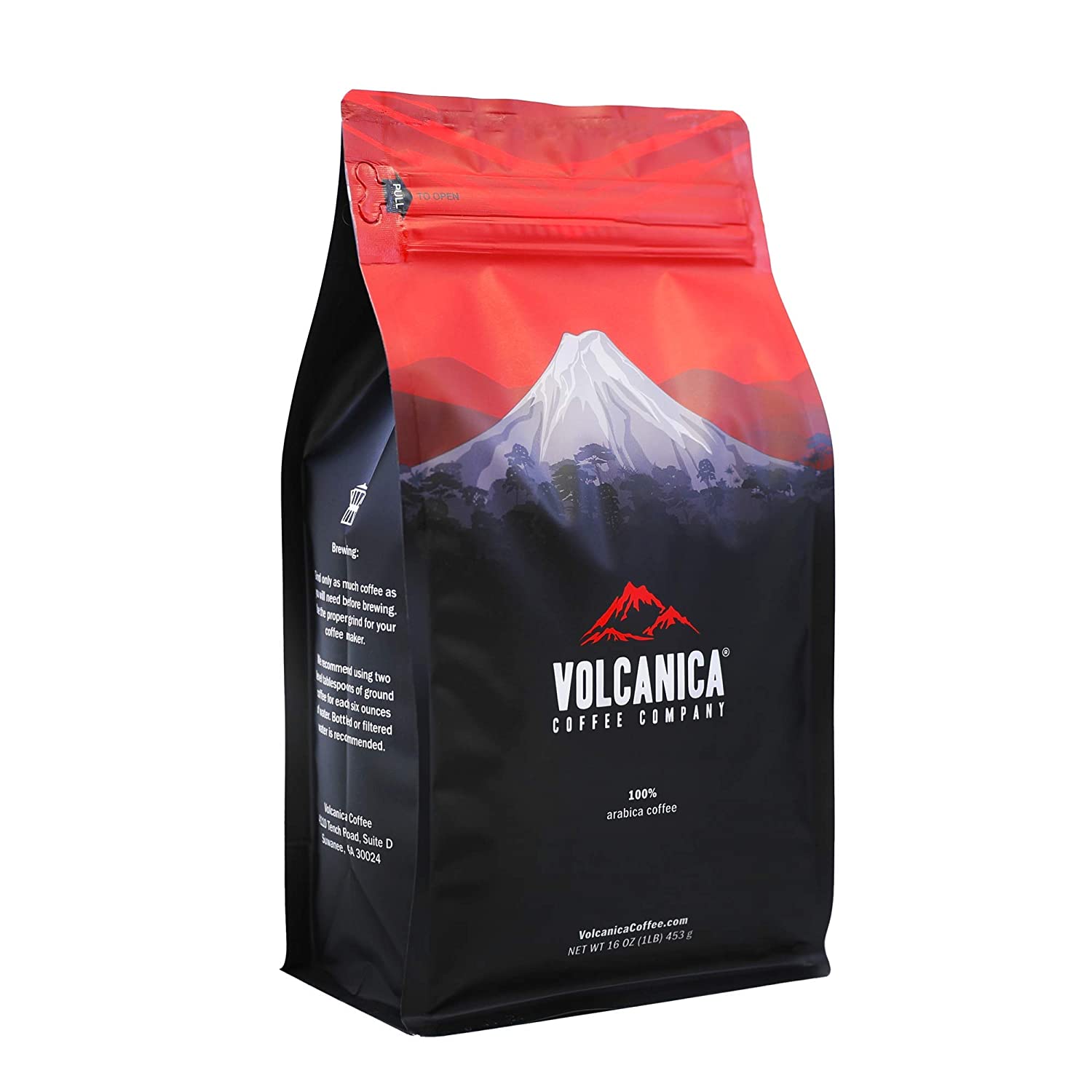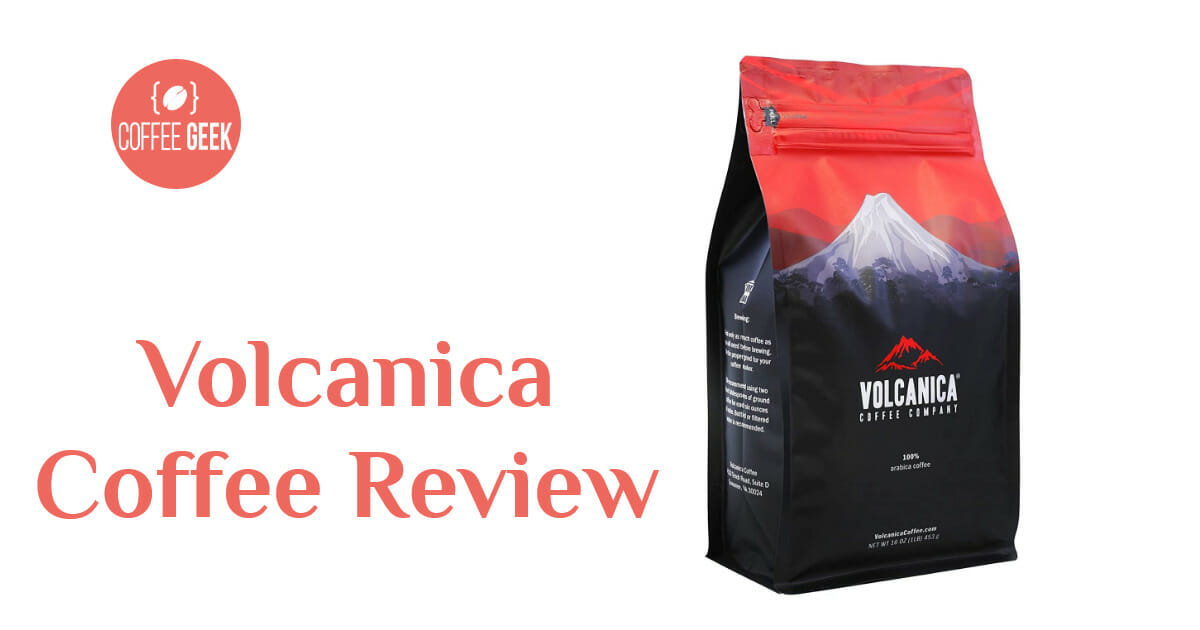
Just so you know, if you click on a product on CoffeeGeek.tv and decide to buy it, we may earn a small commission to help us keep making more awesome guides like this.
For fear of a long period of trial and error, many of us coffee lovers do some research online first before deciding to get a new coffee bean or switch to a different coffee brand.
In this Volcanica Coffee review, I will show you the good, the bad, and ultimately, my opinion of this rising brand that many coffee aficionados are curious, yet still on the fence about.
That said there’s one thing you should know about Volcanica, but I’ll touch on that more later… on with the article.
Why Is Volcanic Soil Good For Growing Coffee
Stigma Of Volcanic Soil
Speaking of volcanoes, most people would picture how dangerous the neighboring land is as the volcanoes can erupt and sweep away the whole area with hot lava in the middle of the night.
Considering how fatal and volatile it is to inhabit, few would think of actually making a living by starting coffee farms in the region. This bad reputation has overshadowed the fact that the coffee farms here can distribute gourmet coffee beans to the rest of the world.

What Is Volcanic Soil?
To begin with, most volcanic soils are known as Andisols or Andosols, in which Ando means “dark” in Japanese. In other words, it’s a type of black volcanic soil.
According to the Food and Agriculture Organization of the United Nations (FAO), this volcanic soil only covers less than 1% of the Earth’s land surface, mostly in and around the volcanic regions along the circum-Pacific volcanic zone, the Alpine-Himalayan belt, and the great Rift Valleys of Africa.
What Does Volcanic Soil Do To Coffee?

Content
Although they’re not the safest and most plentiful soils, Andisols are popular for their fertility. Andisols are formed from “tephra”, which are a mixture of broken down volcanic ash and rock fragments. This leads to a build-up of beneficial nutrients and minerals for coffee planting such as iron, potassium, magnesium, zinc, and so on.
Structure
These volcanic soils also have a fluffy, light, porous, and highly aggregated microstructure that enables better air ventilation and drainage for coffee to extend their roots. Hence, they are considered to make very productive farmlands.
Location
Moreover, since these soils form near volcanoes, the coffee plants here can enjoy the benefits of the cool and humid climate, high altitudes (uplands), and generous shades to thrive and develop.
Who Is Volcanica Coffee?
This is a family-owned specialty coffee roaster founded in 2004 that imports and uses high-quality exotic coffee beans, specifically those grown in volcanic regions around the world, from Africa & Arabia, the Americas, to the Caribbean and Indonesia & the Pacific.
Volcanica Coffee carries over 130 different types of coffee beans to provide great-tasting coffee for a variety of coffee drinkers such as single-origin, estate, peaberry, decaffeinated, and flavored coffees.
From such a diverse selection, surely, even the pickiest coffee lover can explore to find their new favorite gourmet coffee.
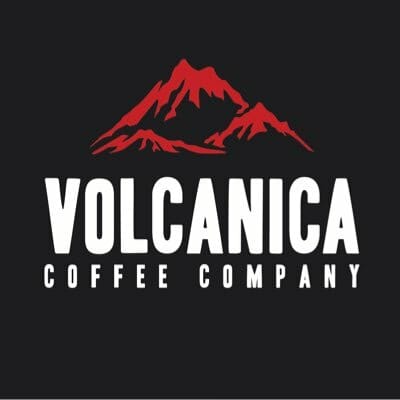
Volcanica Coffee also works directly with the local cooperatives to ensure that the customers get delicious coffee and promote the products of the coffee farmers from these remote regions.
Where Is Volcanica Coffee Located?
Volcanica Coffee roasts the coffee beans in its state-of-the-art roastery in Atlanta, Georgia. Coffee is shipped from gourmet coffee farms in volcanic regions to be hand sourced, roasted, and shipped each week, ensuring that the customers get the freshest batch.
Volcanica Coffee Review – Is Volcanica Coffee Good?
Product Offerings By Region
Africa & Arabia
Coffee beans from Africa and the Arabian Peninsula, notably Ethiopia and Kenya, are the brand’s third-largest selection.
The coffee bean here is distinctively rich, fragrant, deep, and smooth with fruity flavor and chocolate notes, yet still mouthful thanks to the mineral-rich volcanic soils, high altitudes, cool evenings, and regular rainfall.
If you aren’t aware, the Arabian Peninsula is in fact where the first coffee trees were cultivated. This resulted in the term “Arabica” coffee bean, which is considered to be gourmet coffee in the modern world.

You wouldn’t expect less from the birthplace of coffee to make a great cup of Joe. And neither does Volcanica Coffee. The brand offers 20 options of coffee beans originated in this area.
Its diverse selections include AA coffees, larger than normal sizes, and peaberry coffees, rounded coffee beans from coffee cherries that only produce a single bean.
Its best-selling package from Africa & Arabia is the organically grown Ethiopian coffee from Yirgacheffe called Ethiopian Yirgacheffe Coffee.
This is a region in southern Ethiopia that produces coffee with a complex taste, fruity tones, and a remarkable level of brightness, though this may not be everyone’s cup of Joe. This exquisite blend comes from the traditional wild varieties of Arabica in the region, which gives it a characteristically exotic flavor.
Latin America
Coffee beans from Central America, South America (Latin America) are the brand’s biggest selection. How come? This is because many countries in Latin America are situated around the Pacific Ring of Fire, which is the region surrounding the rim of the Pacific Ocean that comprises 75% of the world’s active and dormant volcanoes.
This also indicates that the majority of andisols can be found around the Pacific Ring of Fire. Therefore, the countries in Latin America can make use of the andisols produced by these volcanoes to grow quality coffee.
This has resulted in a robust coffee industry in the region, including countries such as Costa Rica, Colombia, Ecuador, Bolivia, Guatemala, Peru, Brazil, and so on. So, what can you expect from the beans from these coffee-growing regions?
A coffee lover with a refined taste will appreciate the brightness that sets them apart from lower-grown coffee. The mountain coffee here is distinctively light, sweet, and tangy with nuanced qualities that can be brought out well once medium roasted.
Volcanica Coffee offers over 30 selections of great coffee from numerous countries in a variety of roast profiles. One of the best-selling single-origin coffee from Latin America of Volcanica Coffee is Costa Rica Peaberry Coffee.
These estate coffees are collected from the Aquiares Estate located in the Tres Rios region, one of the largest and most historic family-owned coffee farms in Costa Rica.
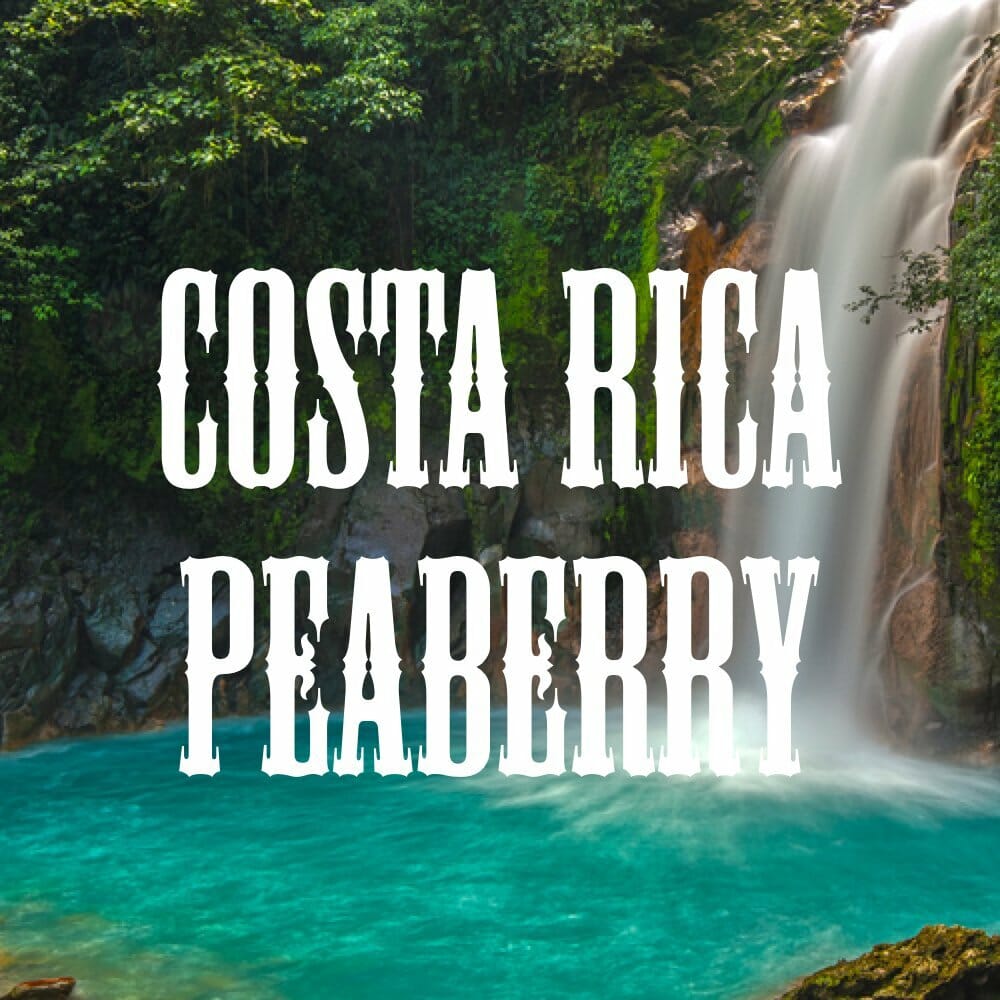
Rainforest alliance certified and shade-grown coffees here bring you a truly balanced brew. The peaberries also contribute a more unique and richer taste than your regular-sized coffee beans.
Sadly, the interesting lemon and almond notes here aren’t very prominent, so some may find it a bit lacking.
Indonesia
Indonesia is also a major coffee-producing country that is situated along the Pacific Ring of Fire. So similar to the coffee beans from Latin America, the coffee here is also “fire”.
Being one of the world’s leading coffee producers, Indonesia has many areas dedicated to distributing high-quality coffee. And, the majority of the renowned coffee regions in the country utilize the local andisols from nearby active and dormant volcanoes.
Firstly, Sumatra, the largest island in Indonesia, is considered to provide one of the most popular coffee varieties in the world. Unlike the types that are grown in Latin America, the finest beans here are low in acidity and have a bold flavor that many would describe as being earthy and creamy.
Moreover, low-acid coffees are perfect for coffee lovers who have a more sensitive stomach. This is achieved thanks to the unique wet hulling technique incorporated into the coffee processing practice in the local area.
Secondly, Sulawesi island has shade-grown their coffee as high as 6,000 ft (1,830 m) above sea level, giving them a lighter taste and lower acidity than other Indonesian coffee.
Thirdly, Flores, where many Komodo Dragons are inhabiting, has also been an ideal location to cultivate good coffee for your everyday brew that’s thick, sweet, milky, and incredibly aromatic.
And last but not least, Java, synonymous with the word “coffee”, prides itself in bringing some of the best coffee to the world.
This is one of the earliest regions in Indonesia that started coffee plantations.
From centuries of experience, you can expect the coffee beans here to be low in acidity, clean, and sweet with notes of local spices.

Volcanica Coffee offers a selection of around 15 tropical and exotic coffee packages from Indonesia.
One of their best-sellers is the dark-roasted Sumatra Mandheling Reserve Coffee.
This is a rare type of Indonesian coffee that is smooth yet rich, sweet yet earthy with compelling hints of molasses and dried fruits.
This low acid coffee is also perfect for coffee drinkers with GERD-related conditions looking for an alternative. Sulawesi also has iconic coffee grown from the Toraja trees found in remote Ethiopia.
Volcanica Coffee’s Toraja Sulawesi Coffee – White Eagle Coffee offers a medium roast of the rare White Eagle coffee variety that’s tasty, tangy, soft, and reminiscent of local spices.
Hawaii
Volcanica Coffee also offers Kona Coffee, world-renowned exclusive coffee beans that can only be found on the slopes of 2 volcanoes, Hualalai and Mauna Loa, on the Big Island of Hawaii.
Kona Coffee is shade-grown in high altitudes around 3,000 ft (914 m) and an ideal cool climate with steady rain. Thanks to those factors and the incredibly rich minerals from andisols, Kona Coffee is considered to be a type of specialty coffee that’s characteristically mild, satisfying, and aromatic.
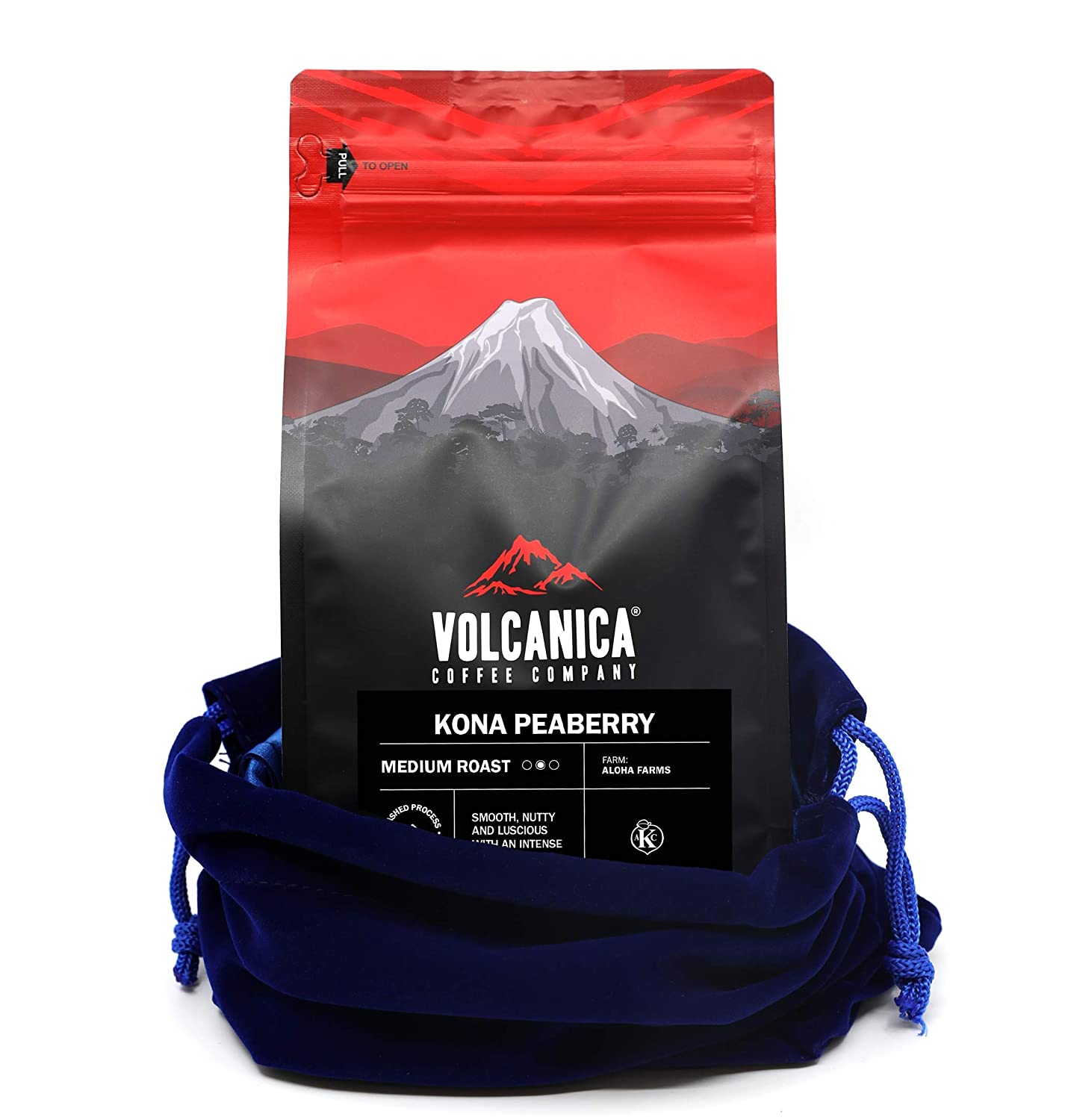
One of the best-selling packages from Hawaii of Volcanica Coffee, the 100% authentic single-origin medium-roast Kona Peaberry Coffee, is well-loved for its smooth, nutty, and velvety taste.
This organic coffee directly supplied by Aloha Farms is medium roasted to provide a balanced flavor and acidity level and preserve the bittersweet aftertaste, though it may also be too bitter for some coffee lovers.
Product Offerings By Category
Decaf Coffee
Volcanica Coffee implements the Swiss Water Process that is 100% chemical-free to decaffeinate 99.9% of your cup of Joe while still preserving your favorite coffee flavors, texture, and aftertaste.
If you enjoy Costa Rica coffee and are looking for a decaf option, here’s good news for you. Volcanica Coffee’s Costa Rica Tarrazu Decaf Coffee can become your next favorite.
This mountain coffee is medium roasted to bring you the smoothness and nuttiness that one craves from coffee despite decaffeination, giving it the crown as a best-selling decaf Volcanica coffee.
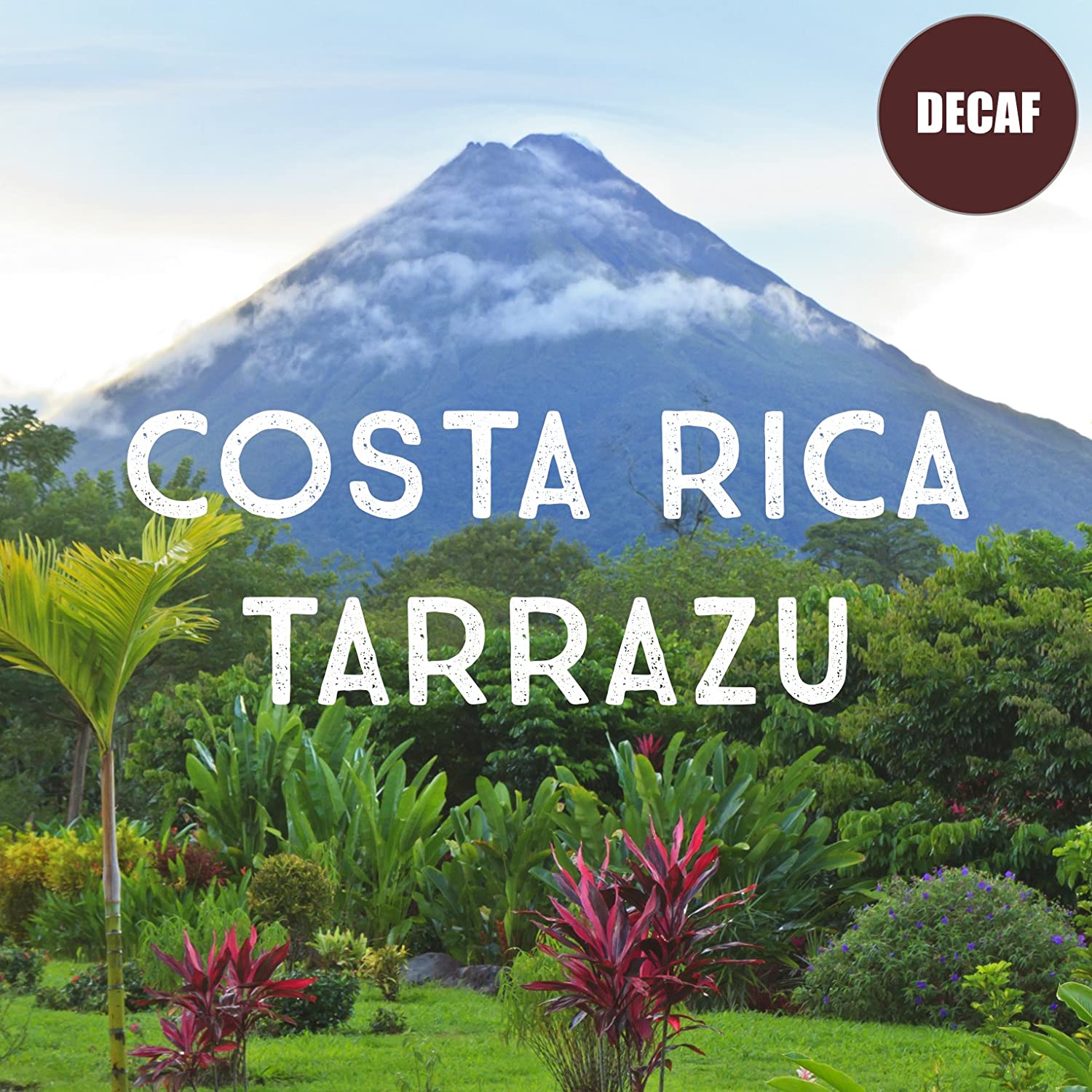
The coffee also has fruitier notes that last till the aftertaste, which may not be the right match for someone looking for an earthier and deeper flavor.
Low Acid Coffee
Is Volcanica Coffee low acid? Certainly, you should have the answer from my reviews so far.
Certain regions produce coffee that is naturally lower in acidity than others, especially Indonesia. Kona Coffee and certain blends from Latin America are also great options for coffee lovers with pickier stomachs.
Other than the Sumatra Mandheling Coffee and Kona Peaberry, you may also find your luck with the organically grown Peru Coffee.
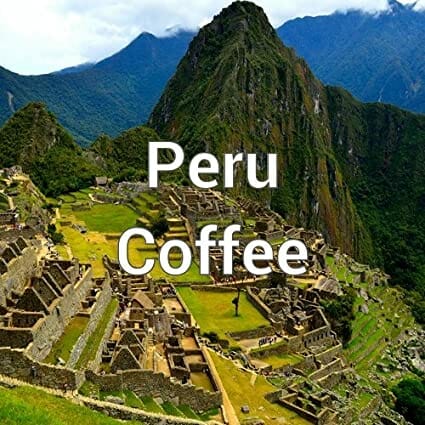
The Peru Coffee is sourced from various farms in Chanchamayo valley, one of the prominent coffee-growing regions in Peru where Arabica dominates production outputs.
You can expect the local coffee to bring a cup of Joe that’s clean and lower in acidity, highlighted by some natural fruity notes. However, it may be deemed too light for those favoring darker and deeper taste and color.
Coffee Blends
Did you know your traditional cup of espresso consists of a blend of both Arabica and Robusta beans? The best coffee might come from where you least expect it.
Blending coffee beans to get interesting flavor combos is an art in itself as well. Knowing what to blend, how much to blend, and how to adjust the roast and grind level accordingly takes a lot of trials and errors to create a new coffee drinking experience.
While many of Volcanica Coffee’s offerings are single-origin, the brand also takes one for the team and introduces different coffee blends to explore the potentials of these little yet delightful beans.
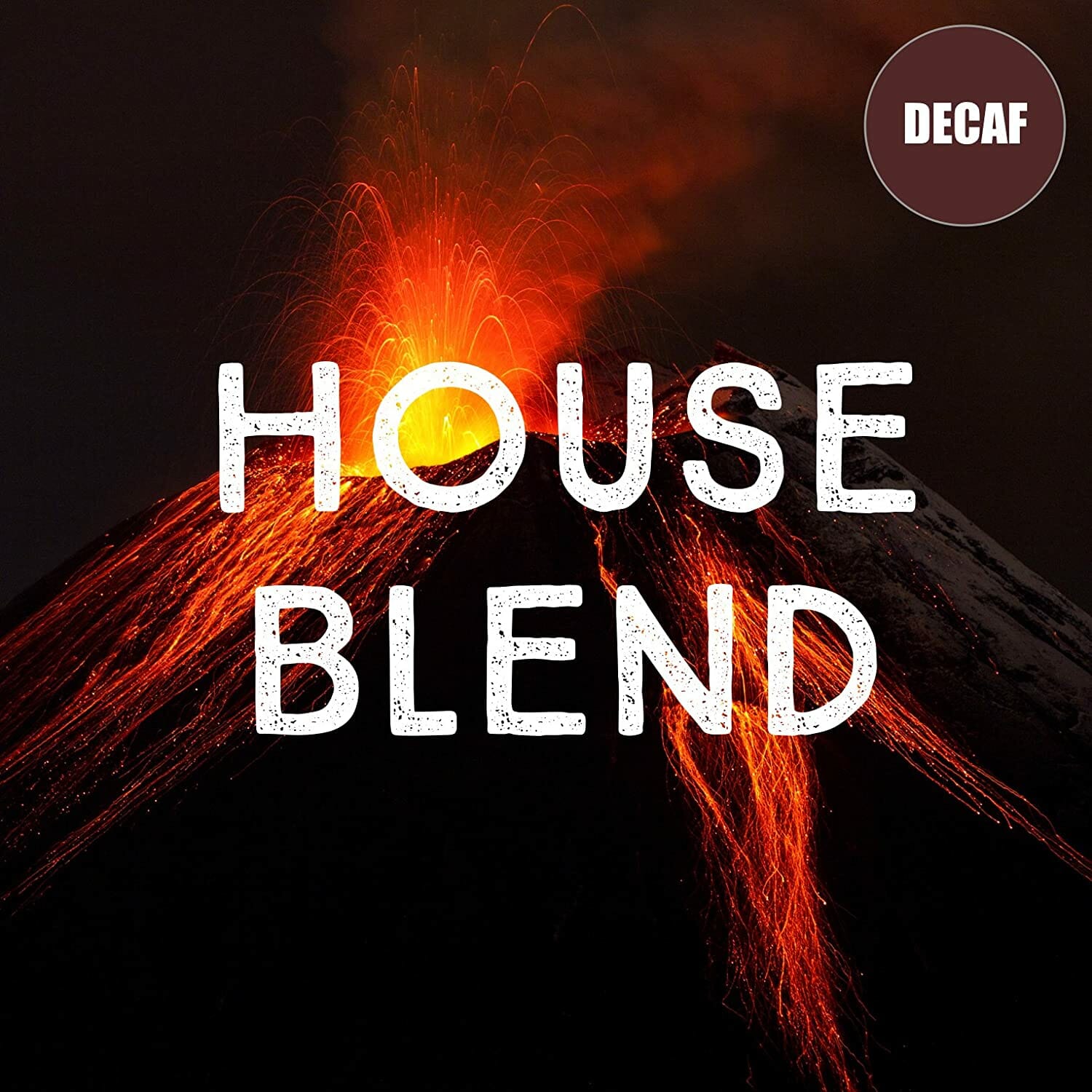
One of its hottest blends is the Volcanica House Blend Decaf Coffee, a fresh roast of different coffee beans from small local farms in Latin America.
Though it’s decaf, the sweet coffee still retains its signature rich and bold profile from being cultivated on andisols along the Ring of Fire.
And, if you’re looking for more low-acid coffee, here’s another in-house option, Volcanica Coffee’s Low Acid Coffee.
This package is a blend of Arabica coffee beans procured from lower altitudes all around the world. The beans are also roasted in longer periods to further lower the acidity while making sure to produce the delicious chocolate notes and nutty flavors of coffee.
Flavored Coffee
Volcanica Coffee certainly has a bit of everything for everyone. For coffee drinkers who appreciate good flavor-infused coffees, they can find plenty of options that are both caffeinated and decaffeinated.
A popular item from the brand in this section is the Hazelnut Flavored Coffee.
As the name suggests, expect a creamy, nutty, and sweet cup of Joe at your table and a distinct hazelnut aroma embracing your kitchen.

Volcanica Coffee Review – Is Volcanica Coffee Sustainable?
Gourmet Coffee Beans
Part of the reason for the positive feedback for the beans is that Volcanica Coffee company can acquire an array of quality certifications that attest to their efforts. The coffee beans acquired are organically and sustainably grown and fairly traded before reaching the hands of coffee enthusiasts.
Organically Grown
Many products of Volcanica Coffee company are Kosher certified, indicating that the coffee has been grown and processed completely naturally without any artificial chemicals and chemical pesticides.
The company also claims that the farms from which it collects coffee beans rely on “natural pesticides”, birds and other local wildlife, to do the job. The rich volcanic soils and other natural fertilizers are also trusted to nourish these divine beans.
Other than the Yirgacheffe Coffee and Peru Coffee that I’ve introduced earlier, you can find more organically grown coffee from the brand here.
Fair Trade Certified
Volcanica Coffee prides itself in acquiring coffee from vulnerable volcanic regions around the world, including small farms and villages.
The brand’s Fair Trade certified coffee signals that the entire production process lives up to the Fair Trade standards.
Partnerships formed between Volcanica Coffee and local farms are based on transparency and cooperation.
This in part helps small businesses both financially and socially as well. Aside from Ethiopian Coffee and Sumatra Mandheling Coffee, you can find more of its Fair Trade certified coffee here.
Rainforest Alliance Certified Coffee Farms
Like most cultivating practices, coffee farming may also be harmful to the local ecosystem, leading to unsustainable livelihood in the long run.
Therefore, Volcanica Coffee also strives to conserve the local biodiversity by collecting coffee from Rain Forest Alliance certified farms. These businesses ethically deal with common problems such as water and land pollution, deforestation, and labor exploitation.
In addition to Costa Rica Peaberry, you can find more Rain Forest Alliance certified coffee here to help promote sustainability as a consumer.
Shade-grown
As I’ve mentioned above, coffee plants grown on volcanic soils also benefit from the volcanoes’ shades. Why is shade-grown coffee better? Coffee trees thrive in the shade and provide higher quality coffee in return.
Moreover, they are also more likely to have been grown organically. Thanks to the shade and the flourishing farm of coffee, birds often flock here and feed on insects and pests, becoming natural pesticides for their habitats.
Costa Rica Peaberry Coffee and Kenya AA Coffee are among the brand’s limited shade-grown selections. If you’re interested, you can find more here.
Jamaican Blue Mountain
What is Jamaican Blue Mountain coffee? Crowned as the Rolls-Royce of all coffees, Blue Mountain coffee is exactly what it’s stated in the name.
This special coffee is grown on the Blue Mountains of Jamaica, near 7,500 ft (2,286 m) above sea level in rich soil and cool climate.
It’s characteristically known for its mild taste with little bitterness. Being so highly praised for its quality, Jamaican Blue Mountain coffee is now globally protected by an exclusive prestigious certification.

Volcanica Coffee claims to sell these amazing beans 100% authentic, certified by the Jamaican Agriculture Board.
Its best-selling package is the Jamaica Blue Mountain Peaberry Coffee. Smooth yet creamy, Blue Mountain Peaberry Coffee is also loved for its distinct floral notes.
But this might not be the right choice for those that prefer bitterness. Other than the 100% single-origin Blue Mountain coffee, the brand also offers a blend of this distinguished coffee at a more affordable price.
The Jamaica Blue Mountain Coffee – Blend contains only 30% of the Rolls-Royce beans. The rest is a combination of the best coffee from different countries that offers a hint of fruitiness and tanginess.
Thoughtful Roasting and Grinding Practice
As aforementioned, Volcanica Coffee takes orders, roasts, and delivers freshly roasted coffee every week. The majority of its products are offered as a medium roast. However, the brand also provides light roast and dark roast as well.
Dark roast coffees include French roast and espresso dark roast to cover whatever demand customers may have. Moreover, customers can order different package sizes that suit their coffee consumption habits.
And other than selling whole beans, Volcanica Coffee also offers various grind sizes for common coffee brewers such as the drip machine, espresso machine, and French Press for all coffees.
Delivery & Customer Service
Volcanica Coffee offers free shipping on orders of $60 and over within the USA. The order can also be shipped within the same business day if the order is placed before noon as well! Nothing is more satisfying than having your coffee craving fulfilled so fast with such fresh beans.
Volcanica Coffee company is also praised for its excellent customer service as it accepts returns within 30 days as long as you make sure to contact by email or phone beforehand.
Our Final Verdict – Is Volcanica Coffee For You?
Overall, what you can get from this Volcanica Coffee Review is:
- Volcanica Coffee offers more diversity in coffee varieties than many coffee brands, providing the best coffee online for every coffee lover including single-origin coffees, peaberry coffee, and decaf coffee.
- Volcanica Coffee generally procures organically grown coffee meeting sustainability standards.
- The quality of each package may vary due to natural farming conditions.
Why not try buying one of its top-selling items I’ve suggested and see for yourself? After all, seeing is believing.
